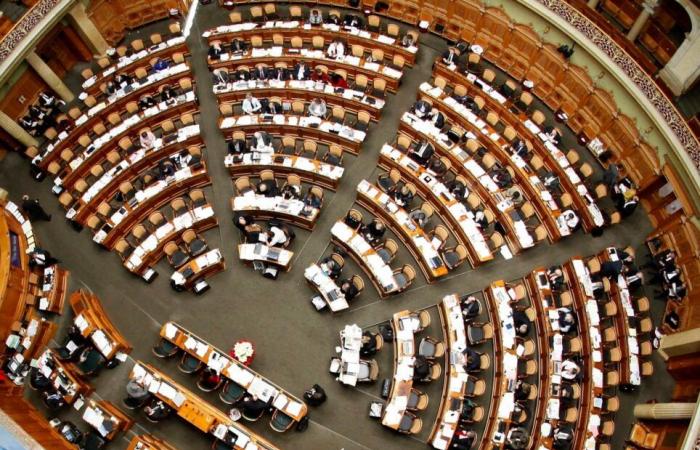After the Council of States – the upper house of the Swiss Federal Assembly –, the National Council – the lower house – voted, Wednesday December 11, by 168 votes to 6, a project of the Federal Council (government) drawn up for the ban on the Hamas terrorist organization for five years. Some of the Greens abstained from voting.
The decision aims to ensure the internal and external security of Switzerland, to facilitate criminal procedures and to fight against the financing of terrorism, explained Jacqueline de Quattro, member of the National Council. The measure will also aim to reduce the risk that Hamas and other related organizations use Swiss territory as a retreat zone.
Preventive police measures, such as entry bans or expulsions, should also be easier to implement. Exchanges of information with foreign police forces should also be facilitated, particularly with regard to financial flows.
Receive our daily edition for free by email so you don’t miss the best news. Free registration!
The validity of the law is limited to five years, but it can be extended by Parliament.
The Federal Council decided, on October 11, 2023, to qualify Hamas as a terrorist organization, and the two Chambers had each already adopted, in December 2023, two motions aimed at banning Hamas.
In drafting the new law banning Hamas, the Swiss government “responded in a targeted manner to the unprecedented terrorist attacks committed by Hamas on October 7, 2023,” the government explained, in line with the practice of banning organizations on a case-by-case basis. cases only “for extremely serious reasons”.
On the other hand, the Swiss government announced at the end of November its opposition to the ban on Hezbollah, the Lebanese Shiite terrorist group created and supported by Iran.
Swiss parliamentary committees had called for a ban on Hezbollah, but in its public response, the government considered that the conditions for a ban were not met.
The Swiss government’s announcement came on the second day of the fragile truce between the Israeli army and Hezbollah.
The Federal Council considered that one of the conditions of article 74 of the 2015 intelligence law was not met, as the Lebanese movement was neither banned nor sanctioned by the United Nations (UN). Which ruled out this legal path.
As for the second possibility of banning the movement, the Federal Council considered “that it is not appropriate at present to ban Hezbollah by creating a new special law”.
The security policy committee of the lower house of Parliament had stressed that “Hezbollah, like Hamas, is a radical Islamist terrorist organization responsible for numerous acts of violence and human rights violations”.
“The ideological and financial support provided by the Iranian regime clearly shows that it is not only directed against the State of Israel, but also represents a threat to the stability of the entire region,” added the Commission, calling for “coherent” measures.
You are one of our loyal readers
We are glad you read X articles from Times of Israël last month.
This is why we created the Times of Israeleleven years ago (nine years for the French version): offering informed readers like you unique information on Israel and the Jewish world.
Today we have a favor to ask you. Unlike other media outlets, our website is accessible to everyone. But the journalism work we do comes at a price, so we ask readers who care about our work to support us by joining the ToI community.
With the amount of your choice, you can help us provide quality journalism while benefiting from reading the Times of Israël without advertisements.
Thank you,
David Horovitz, editor-in-chief and founder of The Times of Israel
Join the Times of Israel community Join the Times of Israel community Already a member? Log in to no longer see this message






